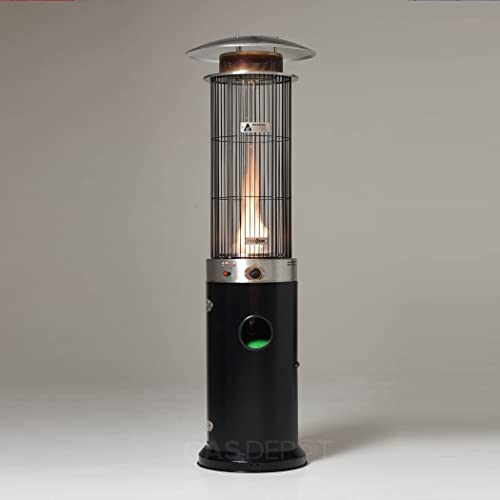20 Gas Heaters Websites Taking The Internet By Storm

Understanding Gas Heaters: A Comprehensive Guide
Gas heaters are an essential component of many families, supplying heat and comfort throughout the colder months. With various kinds of gas heaters available, comprehending their performance, benefits, and security procedures is crucial for users. This article supplies an informative overview of gas heaters, how they work, and addresses often asked questions on the subject.
Comprehending Gas Heaters
Gas heaters run by burning gas or propane to produce heat. They are used to warm indoor spaces and are often thought about more efficient than electric heaters. The primary kinds of gas heaters consist of:
Types of Gas Heaters
| Type | Description |
|---|---|
| Natural Gas | Linked to a gas line and supplies constant heat supply. |
| Propane | Uses propane tanks, making it ideal for areas without gas lines. |
| Unvented | Burns gas without a vent system, suitable for well-ventilated spaces. |
| Vented | Expels combustion gases outside, perfect for keeping indoor air quality. |
Each type has its distinct advantages and applications, making them appropriate for various environments and preferences.
How Gas Heaters Work
Gas heaters usually use a mix of burners, heat exchangers, and blowers to disperse heat successfully. The process usually involves:
- Ignition: Natural gas or propane is ignited either through a pilot light or an electronic ignition system.
- Combustion: The gas burns, creating heat which is then moved to a heat exchanger.
- Heat Distribution: A blower or fan distributes the heated air throughout the space, producing a comfy environment.
- Exhaust: In vented systems, exhaust gases are expelled outside, maintaining security and avoiding toxic buildup inside your home.
Benefits of Gas Heaters
Gas heaters offer various advantages that make them a popular choice for heating areas. A few of the essential benefits consist of:
- Energy Efficiency: Gas heaters usually supply more heat per system of fuel compared to electric heaters, making them an affordable heating alternative.
- Quick Heating: They warm up spaces quickly, offering instant heat when turned on.
- Eco-friendly: Natural gas is cleaner than coal and is thought about a more eco-friendly option than electric heating in numerous regions.
- Dependability: Gas heaters can continue to operate throughout power blackouts, ensuring continued comfort throughout severe weather.
Disadvantages of Gas Heaters
While gas heaters have lots of benefits, there are likewise some disadvantages to think about:
- Installation Cost: The initial setup cost for gas lines or propane tanks can be high.
- Security Risks: There are intrinsic dangers connected with gas leaks and carbon monoxide gas poisoning, requiring careful setup and upkeep.
- Space Requirements: Some kinds of gas heaters (particularly vented ones) require considerable space for installation and exhaust systems.
Upkeep Tips for Gas Heaters
Proper upkeep is important for making sure the safety and efficiency of gas heaters. The following suggestions can help maintain optimal performance:
- Annual Inspections: Have a certified technician examine the gas heater each year to look for leakages and make sure appropriate functionality.
- Tidy the Heater: Regularly tidy the heater and surrounding area to prevent dust build-up, which can impact performance.
- Examine Vents: Ensure that all vents are unblocked and working properly to avoid buildup of damaging gases.
- Screen for Smells: Any uncommon smell, especially gas, must be attended to right away by getting in touch with an expert.
Frequently Asked Questions about Gas Heaters
Q1: Are gas heaters safe to utilize inside?
Yes, gas heaters can be safe for indoor usage as long as they are properly installed and kept. Stylish Outdoor Heaters are especially safe since they expel combustion gases outside, minimizing the threat of carbon monoxide gas poisoning.
Q2: How can I tell if my gas heater has a gas leakage?
Signs of a gas leak consist of a foul smell looking like rotten eggs, hissing noises, and dead vegetation around the area. If you believe a gas leak, it is vital to evacuate the premises immediately and contact your gas company.
Q3: Do gas heaters need a power source?
Many gas heaters do not require electrical power to operate, particularly those that rely on gas. However, models with fans or electronic ignition systems will need a power supply.
Q4: What should I do if I smell gas near my heater?
If you smell gas, you should right away leave the location, prevent using any electrical devices, and call your gas company or emergency services from a safe distance.
Q5: What is the lifespan of a gas heater?
Usually, gas heaters have a lifespan of 10 to 15 years with proper maintenance. Regular inspections can help extend their functional life.
Gas heaters can be an efficient and reputable way to keep homes warm and comfortable during cold weather condition months. Their various designs and benefits accommodate different requirements and preferences. Nevertheless, comprehending their performance, possible security issues, and maintenance requirements is vital for any homeowner thinking about or currently using gas heating. By following finest practices and staying informed, users can delight in the heat and performance of gas heaters for years to come.

